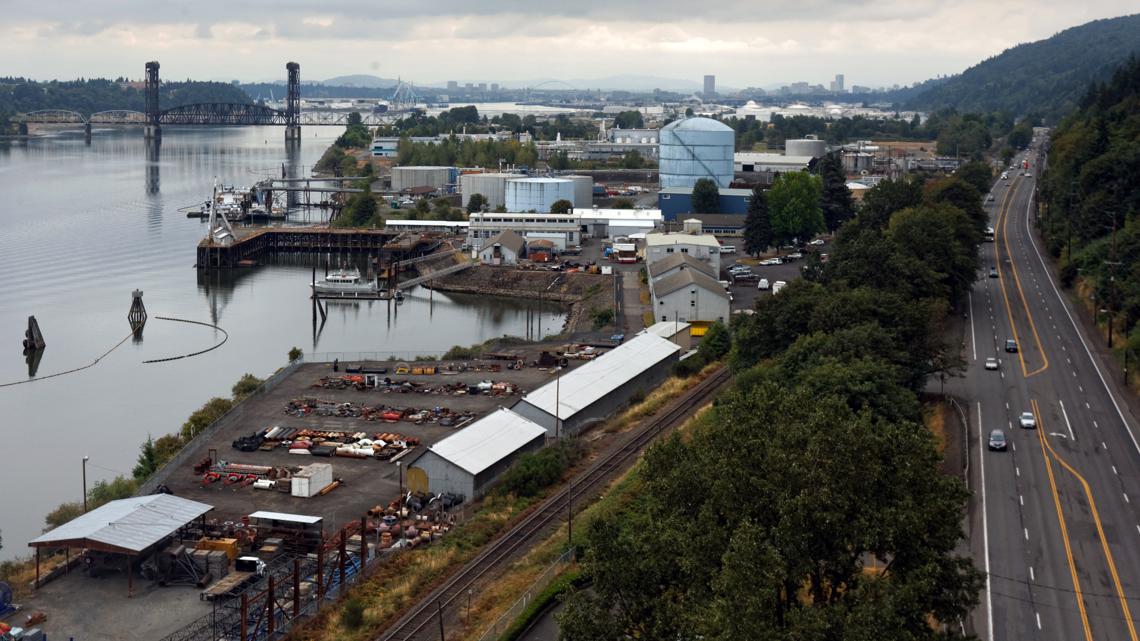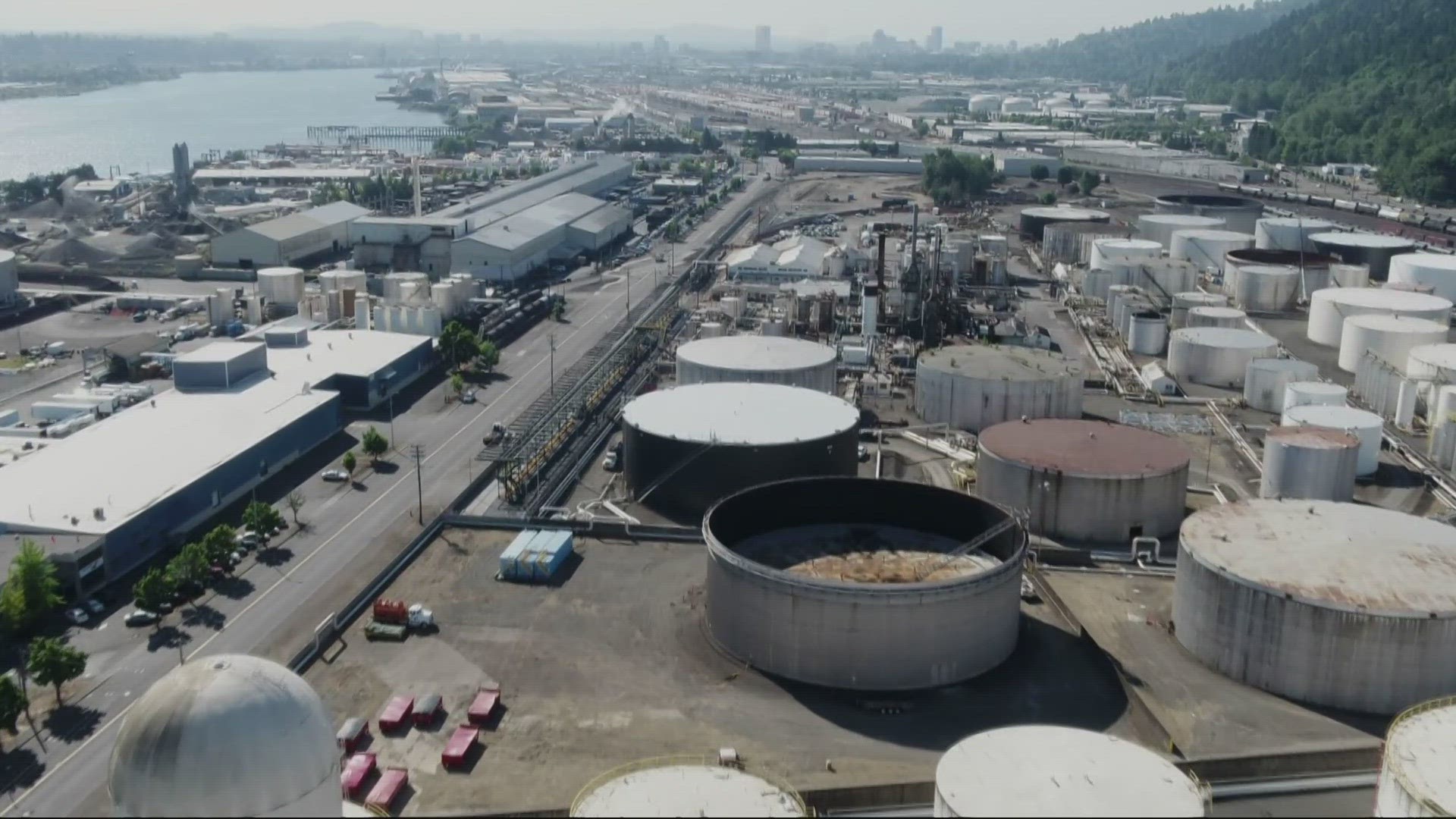PORTLAND, Ore. — Dozens of Portland neighborhood associations, environmental organizations and other local community groups have sent an open letter to city, county and state and federal officials, calling for increased public education and development of a coordinated plan to address earthquake vulnerabilities at the city's Critical Energy Infrastructure Hub.
The hub consists of dozens of industrial-scale fuel tanks that hold about 90% of Oregon's gas and diesel supply before distribution, and it sits along a six-mile stretch of the Willamette River shoreline that is highly vulnerable to soil liquefaction, creating the potential for a catastrophic spill of about 100-200 million gallons of fuel when the next major earthquake arrives.
State lawmakers stepped in with Senate Bill 1567 in 2022, which requires bulk fuel terminal operators to perform seismic vulnerability assessments and then develop and implement state-approved mitigation plans. Tuesday's open letter from the Portland groups calls that legislation "a commendable first step, but not enough."
At a news conference organized by the letter-writers, speakers stressed that the danger of the Cascadia Subduction Zone has been known for decades, but they also emphasized that earthquakes aren't the only risk, pointing to disasters like wildfires and oil train derailments.
"We are no safer now than we were 30 years ago," said Linnton neighborhood resident Nancy Hiser. "It's clear: disaster triggers aren't limited only to earthquakes... lightning strikes are the main cause of oil tank fires and explosions worldwide. Floods occur with increasing frequency, and the Hub is in a floodplain, on liquefiable soil."


The letter lays out six additional steps for state and local governments to take, starting with a widespread media campaign to make the public more aware of the dangers of the hub outlined in a risk analysis commissioned by Portland and Multnomah County in 2020. It also calls for the governments to "monitor and remediate" pollution from the hub's current day-to-day operations, and to develop a new state-level fuel storage plan.
It also calls for the companies that operate the hub to "assume full financial responsibility" for disaster prevention and clean-up efforts in the event of disaster, and asks the state legislature to pass new regulations to help local government agencies track the types of fuels and other chemicals going into and out of the hub. Finally, the letter urges state officials to closely monitor Zenith Energy's switch from crude oil to renewable fuels.
Hiser was joined on Tuesday by speakers, including Multnomah County Office of Emergency Management director Chris Voss, former Oregon Seismic Safety Policy Advisory Committee member Jay Wilson, Portland Planning Commission member Michael Pouncil and former Multnomah County medical director Patricia Kullberg.
"We do not want an East Palestine, Ohio — 100,000 gallons of chemicals spilled. We do not want a Mosier, Washington — 47,000 gallons of oil spilled. We do not want a Lac-Mégantic in Canada — 1.6 million gallons of oil spilled," Pouncil said.
Voss echoed Pouncil's comments and stressed that the size of a potential CEI Hub spill would dwarf the amounts spilled in those other major disasters.
"If Cascadia was to happen tomorrow, being like one of those cities might be a best-case scenario for us, because of the risk that we have," he said.
KGW reached out to Mayor Ted Wheeler for comment and got a reply from Commissioner Carmen Rubio's office, stating that the state is the lead agency for the CEI Hub project but describing the city as supportive of the work.
"Our office is serious about moving faster and more aggressively away from fossil fuels. In 2022 we passed rules to permanently halt the expansion of fossil fuel storage capacity at the CEI Hub, and we updated our Renewable Fuels Standard to increase use of cleaner biodiesel and renewable diesel," Rubio's office wrote, also pointing to the 2022 state legislation and calling for federal Congressional action to maintain safety on trains transporting fossil fuels.
The statement also noted that the operator mitigation plans required by SB 1567 are due on June 1, and the legislature allocated additional funding to the Oregon Department of Environmental Quality earlier this year to cover the cost of evaluating the plans and setting up remediation timelines.

